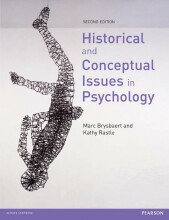Ethical guidelines for psychology research
31 important questions on Ethical guidelines for psychology research
What are the core principles of the Belmont report?
- the principle of respect for persons
- the principle of beneficence
- the principle of justice
Of which components does the principle of respect for persons consists?
- participants should be free to determine if they want to participate in the study.
- some people have less autonomy, and should therefor get special protection. (kinderen en gehandicapten kunnen niet zelf bepalen).
How do we call each person learning about the research project, it's benefits and risks and then decides wether to participate?
- Higher grades + faster learning
- Never study anything twice
- 100% sure, 100% understanding
Of which components does the principle of beneficence consists?
- assessing the risks and benefits of the study
- considering how the community might benefit or be harmed
- will a community gain knowledge of value from this study
- will there be costs to a community if the research is not conducted.
How do we call a research design in which researchers collect some identifying information for contacting people at a later date, but prevent it from being disclosed?
Which core principle of Belmont is described; a fair balance between the kinds of people who participate in research, and the kinds of people who benefit from it. don't let poor people participate in research where only rich people benefit from the results. the participants must be representative for the community that benefit.
What are the principles the APA added to the list of principles the Belmont report already stated?
- fidelity and responsibility
- integrity
Which ethical principle is described; establish relationships of trust and professionality in research, teaching and clinical practice.
Which ethical principle is described; strive to be accurate, truthful, and honest in one's role as researcher, teacher or practitioner.
How do we call not telling participants the full nature of the study at first to prevent biases, which is later corrected in the debriefing?
How do we call deception where a few details of the study are withheld from the participants?
How do we call deception where participants are actively lied to?
How do we call inventing data to fit hypotheses?
How do w call influencing study results to fit hypotheses?
How do we call the representing of ideas and words of another as ones own?
What are the three r's of animal care guidelines?
- replacement, find alternatives for animals in research
- refinement, modify research procedures and other aspects to optimalize conditions for the animals
- reduction, the less animals the better.
What three properties are associated with the significance virus?
- significant results are published easier
- significant results are associated with a good researcher
- significant result are associated with a well conducted experiment
Which two things cause the publication bias?
- the file drawer problem
- journals tend to publish insignificant results less.
How do we call the fact that researcher tend to not write papers on research that turned out to be insignificant?
How do we call the situation in which the effect reported in literature differs from the actual effect?
How do we call an analysis on a collection of all research on one specific topic?
How do we call doing as many statistical tests until you find a result, which is probably a chance finding and a type I error?
How do we call the effect that occurs with data dredging, where causality is inferred in a result, while it is actually a result of chance?
What does HARK-ing stand for?
With which study types can HARK-ing be prevented?
- explorative studies
- confirmatory studies.
How do we call a study in which the hypotheses haven't been stated beforehand?
What are the two ways to conduct a confirmatory study after an explorative study? and what are the downsides of these?
- conduct a whole new study, lot of work.
- divide the data sets in two and use one for the confirmatory study, small N's
What technique can be used to go against chance capitalization?
How do you calculate the Bonferroni correction?
How do we call falsification of data, or research?
What are the problems with null-hypothesis significance testing?
- statistical significance vs practical significance
- significance level is arbitrary
- not intuitive.
The question on the page originate from the summary of the following study material:
- A unique study and practice tool
- Never study anything twice again
- Get the grades you hope for
- 100% sure, 100% understanding
































